Not going back to the city: what treechangers love about regional living
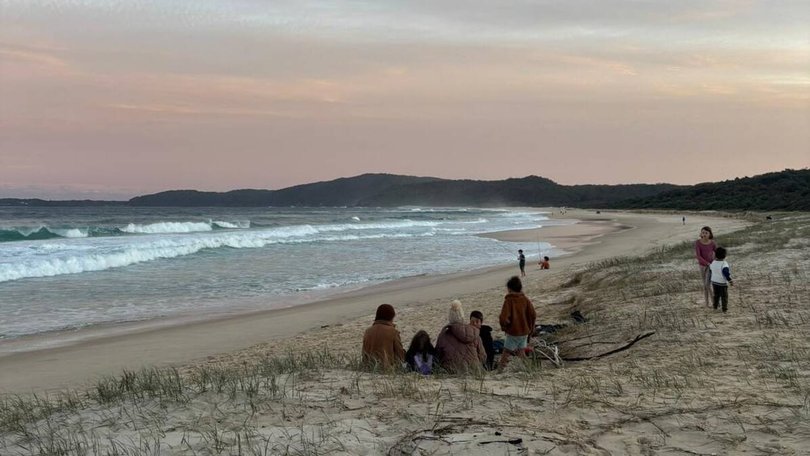
The pandemic-era 'tree change' was meant to be a temporary exercise for the Aussies keen on trading city skylines for wide open spaces, fresh air and a slower pace of life.
But the common story? A more permanent transition.
Nerida Lindsay and her family made the move from buzzing Bondi to the majestic mid-north coast NSW in 2020.
Sign up to The Nightly's newsletters.
Get the first look at the digital newspaper, curated daily stories and breaking headlines delivered to your inbox.
By continuing you agree to our Terms and Privacy Policy.Like many Australians at the time, they were seeking space, simplicity and a break from the pressure cooker of city living.
Five years later, they're not looking back.
"We live a relaxed lifestyle in an amazing community, and in paradise," says Mrs Lindsay.
The current regional market outlook
Cotality data reveals that from March 2020 to 2025, regional values have risen by more than 56 per cent.
Post-pandemic boom, the regions have continued to show overall resilience. In the recent two quarters, for example, they're outperforming capital cities (1.6 per cent compared to 1.4 per cent).
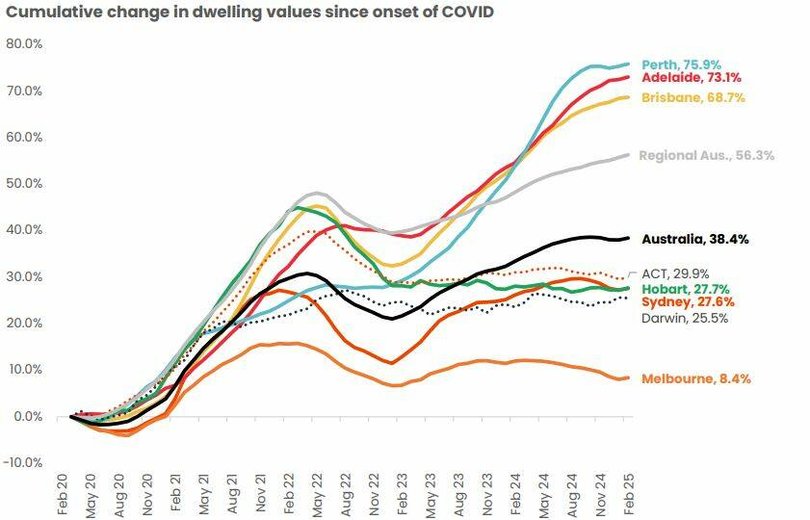
Many metro and regional areas are also currently experiencing record highs, according to Cotality's July Housing Chart Pack.
Regional areas in Queensland (77.7 per cent), Brisbane (78.8 per cent), Perth (74.8 per cent), South Australia (61.4 per cent), and regional WA (53.6 per cent) are leading the pack.
Other areas, like Victoria, still offer opportunities.
Ray White Mildura Managing Director and Chairman's Elite Sales Agent Damian Portaro says regional markets went through a "consolidation phase" after the COVID surge, where prices flattened out, but that activity is ramping up again, particularly among investors.
"Today, the exciting news is that regionally we are experiencing an investor boom, and that would be putting it lightly, to be frank."
Despite market fluctuations, interest in regional relocation continues to be driven by lifestyle migration, relative affordability and a lack of supply in metro areas.
Let's look at what makes regional living so good.
More house for your money
Affordability is the obvious drawcard for those who've chosen a tree change.
But it's about more than property prices - it's about what your money actually buys you.
Moving regionally gave Mrs Lindsay, her husband and three kids access to the kind of home and lifestyle that would have been financially out of reach in Sydney.
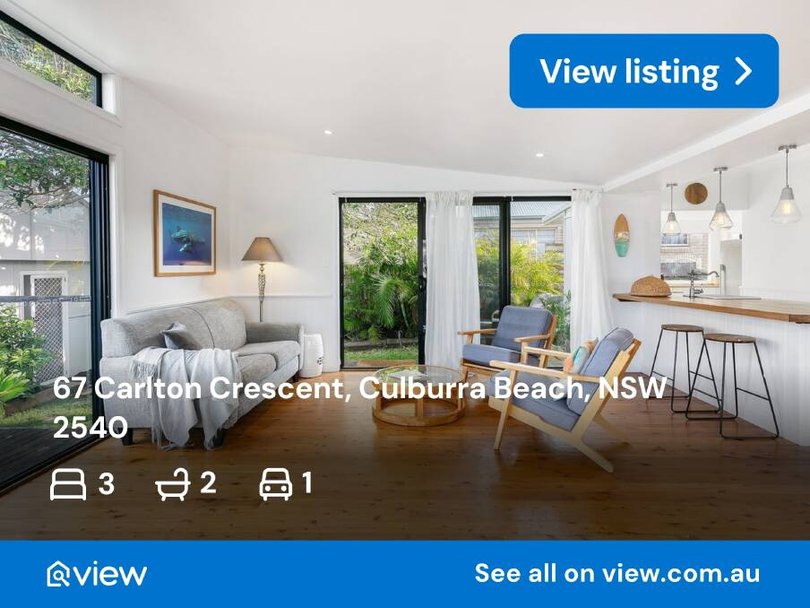
"In the area we're in, the general rule is for half the price of a place in Sydney, you get two to three times the amount of space," she says.
"It's kind of crazy. Around here, for under a million, you can have a four-bedroom house with a backyard, garage - even a separate studio."
A similar sentiment is shared by Mr Portaro in regional Victoria.
"Property prices and value for money are definitely huge considerations [for relocation]. Double the land size and 50 per cent more house is attractive and regularly commented upon by 'tree changers,'" he says.
Rental prices tell a similar story
When the family was living in Bondi in 2019, their rent was $800 per week for an older-style apartment.
Their first rental on the NSW coast was just $425 a week for a large four-bedroom home that backed onto rainforest.
Mrs Lindsay says that even when prices climbed after COVID, rent remained under $700 per week in the area - significantly less than what you'd pay for a comparable property in any Australian capital, as rent prices skyrocketed in metro areas during the same period.
Cost of living: 'We cut our expenses in half'
It's not just the housing market that feels more accessible. Depending on the region, overall, cost of living can also drop dramatically.
"I'm quite sure we cut our expenses in half," Mrs Lindsay says.
"We don't do takeaway at all anymore, we cook every meal. We still need daycare, but it's much cheaper, and we don't really have to pay for activities."
"It's other little things, too: you don't have to pay for parking here or worry about how long you've left the car somewhere," she says.
<img src="https://cue.wanews.com.au/webservice/thumbnail/article/19376737" id="_d6a8c705-c063-446b-b4eb-8eabf5500cba" alt="Not Supplied" caption=""I'm quite sure we cut our expenses in half," Mrs Lindsay says of her family's decision to move to regional Australia." credit="View">
Speaking of cars, they turned out to be an unexpected hit to the hip pocket.
"The only thing that brings up costs is the cars, because living regionally, a family has to have two cars," says Mrs Lindsay.
"Petrol and car maintenance is very expensive, plus we have to pay double loan insurance and green slip and all of that, so that's a big hit that you wouldn't have in Sydney."
A stronger sense of community
For Mrs Lindsay and her family, regional life offers the kind of community connection that's harder to come by in the city.
"You truly feel that you're living in a community," she says.
"When we go to the markets, we don't have to stress or worry about where our kids are. Everyone knows your kids; everybody knows everyone.
"And while everyone isn't necessarily friends, if you need something, someone will always put their hand up to help. It's an amazing way to live and a great way for kids to grow up."
As if on cue, one of the couple's children interrupts the interview to ask when they are heading down to the beach for a sunset bonfire with friends.
Mrs Lindsay says this is a perfect example of a regular, relaxed way the family connects with their community.
Time over hustle
While the city might offer more choice when it comes to schools, specialists and extracurricular activities, regional life offers something many parents value more: time.
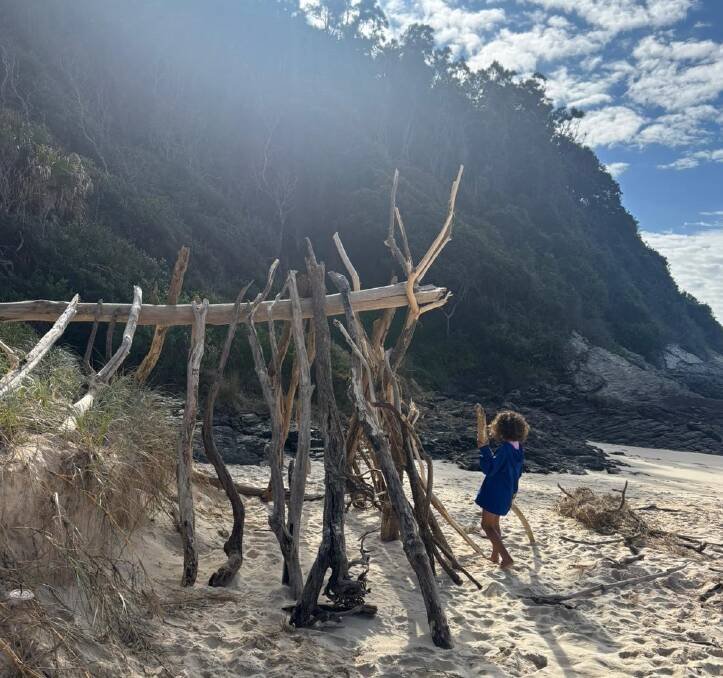
"The kids might not have as much access to certain facilities and things that you would have in the city, but we are able to spend more time with them - to help do their homework, attend every assembly, help them with things that they need, or spend lots of time out in nature with them," says Mrs Lindsay.
"If we lived in the city, I would have to work full-time, and we'd both be working really long hours. The kids would be in before-school care, after-school care, and while that's fine, it's not what I personally wanted."
Regional living has allowed them to build a lifestyle that aligns with their values, albeit with some compromises.
Compromises and hurdles
What do you lose when you leave the city? For this family, it's mostly about food.
"Food, restaurants - we 100 per cent miss. Our area is not the best for restaurants, which is very sad," says Mrs Lindsay.
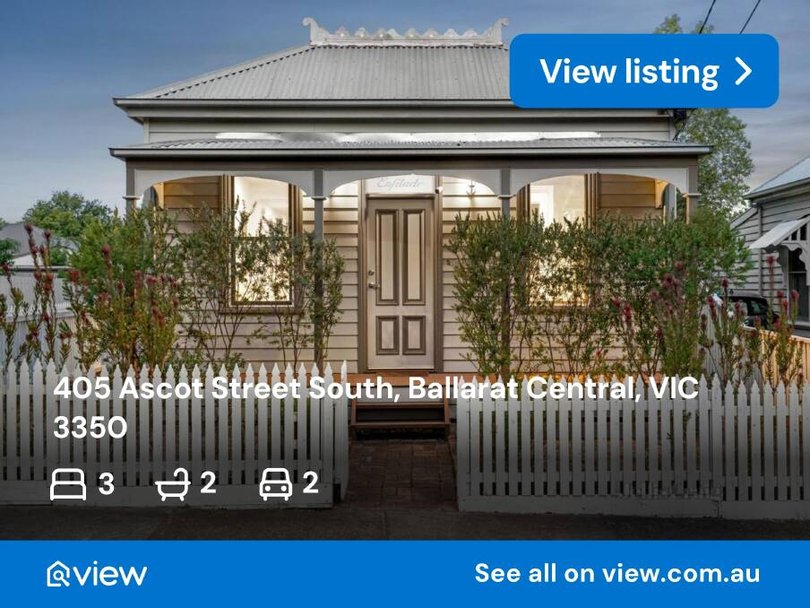
They've also had to be intentional about staying connected with friends. But the payoff is deeper quality time with the people who matter.
"When people visit, they stay with us and we really hang out," says Mrs Lindsay.
"Last weekend I had two old friends come up with their kids - three mums and seven kids - and we had three days together. It was awesome."
Another major hurdle can be work.
Mrs Lindsay says that it can be tricky finding suitable jobs or fully remote work, so moving regionally may only be viable for some.
In their case, her husband runs a business that allows them to work remotely, circumstances they're aware aren't possible for everyone.
Keen for a change? Consider this first
"We do often find people need more than one reason to move, like family, work, sport. We are not just one suburb away," says Mr Portaro.
"But once here, they stay. Our weather, community at large and lifestyle are appealing to those that have been caught up in the metro pace (and traffic!)".
He advocates for renting as a way to get to know a location before making your final decision. "Often renting first to understand the geographic is ideal," Mr Portaro says.
"Where you want to live in metro areas might be determined by suburb, but regionally, it can be by small pockets or even streets. Move two streets over and it can feel completely different."
Mrs Lindsay recommends clarifying your values and priorities.
"What are the things that are most important to you at this point in life? Then you can set your life up a certain way to support those values. For us, choosing to leave the city was the path to realising that vision," she says.
Whatever your reasons, the feedback is clear: regional living isn't just a cheaper option, it's a richer life.
Originally published as Not going back to the city: what treechangers love about regional living
